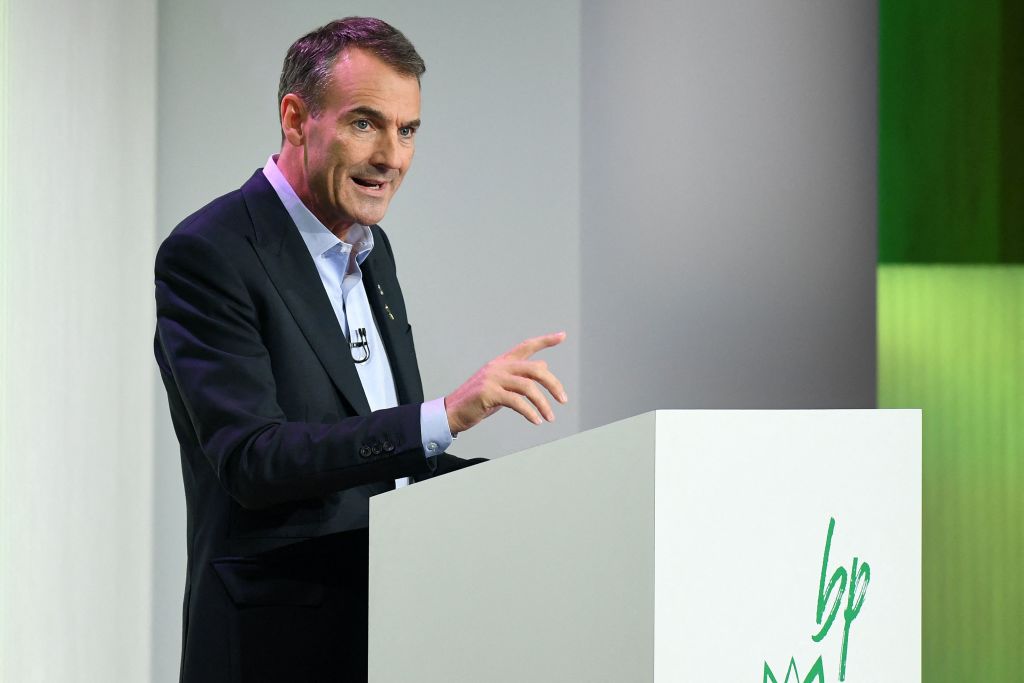
If you want an illustration of the political perils of making huge oil and gas profits in the UK, look no further than a £400 charitable donation from the boss of BP Plc.
That’s what Chief Executive Officer Bernard Looney had to offer, in a swift piece of reputational management, after it emerged in an interview with the Times newspaper that he was unaware the UK government was offering direct financial assistance to help families pay their soaring energy bills this winter.
Looney, whose salary this year is £1.4 million, has little need of the extra funds that will go to every household in the country. But the incident is nonetheless of prime importance for a company like BP.
The surge in profit reported by the British company on Tuesday, which followed similar windfalls for other major oil and gas firms last week, raises the temperature of the political debate about a cost of living crisis driven in large part by higher energy prices.
Read more: BP’s CEO Is Trying to Convince the World He’s Serious About Going Green
Out of $8.45 billion in profits BP posted for the second quarter, $3.5 billion will be used to buy back the company’s own shares, and the dividend will rise by 10%. Those handsome rewards for investors sit uncomfortably alongside the very real pain that will be experienced by many British households in the coming months.
Analysts at Cornwall Insight said they expect a typical household’s energy bill to be well over £3,000 until at least the end of 2023, an unprecedented increase that would plunge millions into poverty.
“I understand that people are under intense financial pressure here in the U.K. and across the world,” Looney said in an interview. “We can all acknowledge that it’s a very, very difficult situation. So the question is how can we help?” BP is working flat out to help solve the energy crisis, he said.
This could be the key political issue for whoever becomes the U.K.’s next prime minister. One of the candidates, former Chancellor the Exchequer Rishi Sunak, already imposed a windfall tax on oil and gas companies to help finance support measures for the public. That will cost BP’s North Sea business about $800 million in additional levies until the end of 2025, the company said Tuesday.
Read more: The U.K. Is Caught in a Leadership Crisis at the Worst Possible Time
If households require further financial support, the government may need to spend billions of pounds more. Calls for further taxes on the industry are growing.
“While households are being plunged into poverty with knock-on-impacts for the whole economy, fossil fuel companies are laughing all the way to the bank,” Doug Parr, chief scientist for Greenpeace UK, said in an emailed statement. “The government must bring in a proper windfall tax on these monster profits.”
In addition to Looney’s donation, which will be matched by Chief Financial Officer Murray Auchincloss, the company highlighted its plans invest as much as £18 billion into the UK this decade on fossil fuel extraction, renewable energy production and EV charging. Those efforts are set to create thousands of jobs across the country, the company said.
More Must-Reads from TIME
- Cybersecurity Experts Are Sounding the Alarm on DOGE
- Meet the 2025 Women of the Year
- The Harsh Truth About Disability Inclusion
- Why Do More Young Adults Have Cancer?
- Colman Domingo Leads With Radical Love
- How to Get Better at Doing Things Alone
- Michelle Zauner Stares Down the Darkness
Contact us at letters@time.com